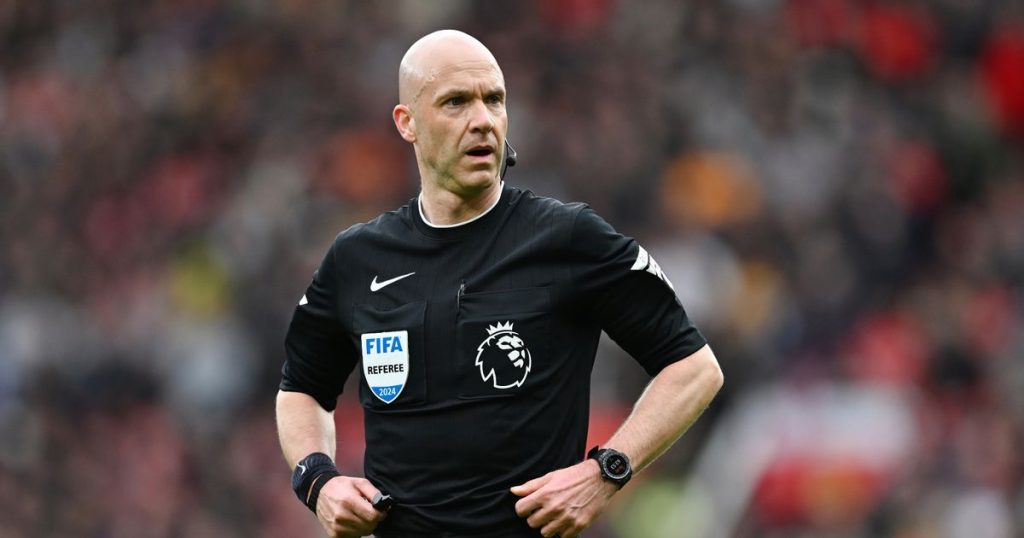Richard Keys, a broadcaster, expressed concern about the Premier League’s decision to appoint Anthony Taylor as the referee for matches between Manchester United and Liverpool. Taylor, a Greater Manchester native, officiated his third match between the two teams in a Premier League fixture. Keys acknowledged Taylor’s good performance in the latest game, except for a decision to not dismiss Casemiro for a reckless challenge. Keys highlighted the pressure Taylor faces as a fan of Altrincham, a non-league club. He criticized the Professional Game Match Officials Limited (PGMOL) for appointing Taylor to such high-profile games, citing the risk of controversy.
The decision at Wolves involving a VAR check was mentioned by Keys, where a goal was disallowed for offside. Gary O’Neil, a participant in that match, expressed his frustration with the officiating, emphasizing the need for improvement. Keys connected this incident to the potential challenges Taylor might face as a referee for games like Manchester United vs. Liverpool. The appointment of Taylor to these fixtures was questioned by Keys, who believed it could lead to unfavorable scrutiny if controversial decisions were made. The importance of ensuring consistent and fair officiating across Premier League games was underscored in light of such incidents.
Taylor’s handling of the game between Manchester United and Liverpool was praised by many, including Keys, for his overall performance. Keys acknowledged the challenging nature of refereeing high-profile matches and the additional scrutiny this brings, especially for Taylor, given his connections to the local football community. The focus on the decisions made by referees in crucial moments of games like these reflects the intense scrutiny referees face in the modern game. Balancing the expectations of fans, players, and officials while maintaining the integrity of the sport is a constant challenge for those involved in football officiating.
The implementation of VAR technology in football has added another layer of complexity to refereeing decisions, as seen in the incident at Wolves. Key stakeholders in the game, including players, coaches, and fans, have called for greater transparency and accountability in the officiating process. The need for consistency and accuracy in VAR decisions was highlighted in discussions following contentious calls during matches. Referees like Taylor navigate these challenges during fixtures, aiming to uphold the rules of the game while managing pressure from various sources to ensure fair play.
Overall, the scrutiny of referee decisions in high-profile matches like Manchester United vs. Liverpool showcases the demanding nature of officiating in elite football competitions. The role of referees in maintaining the integrity of the game, enforcing the rules, and making split-second decisions under pressure is essential for the sport’s credibility. As debates around VAR technology, referee appointments, and decision-making processes continue, the focus remains on improving officiating standards to enhance the overall quality and fairness of football matches. Anthony Taylor’s experience as a referee exemplifies the complexities and responsibilities associated with officiating top-level football games.


